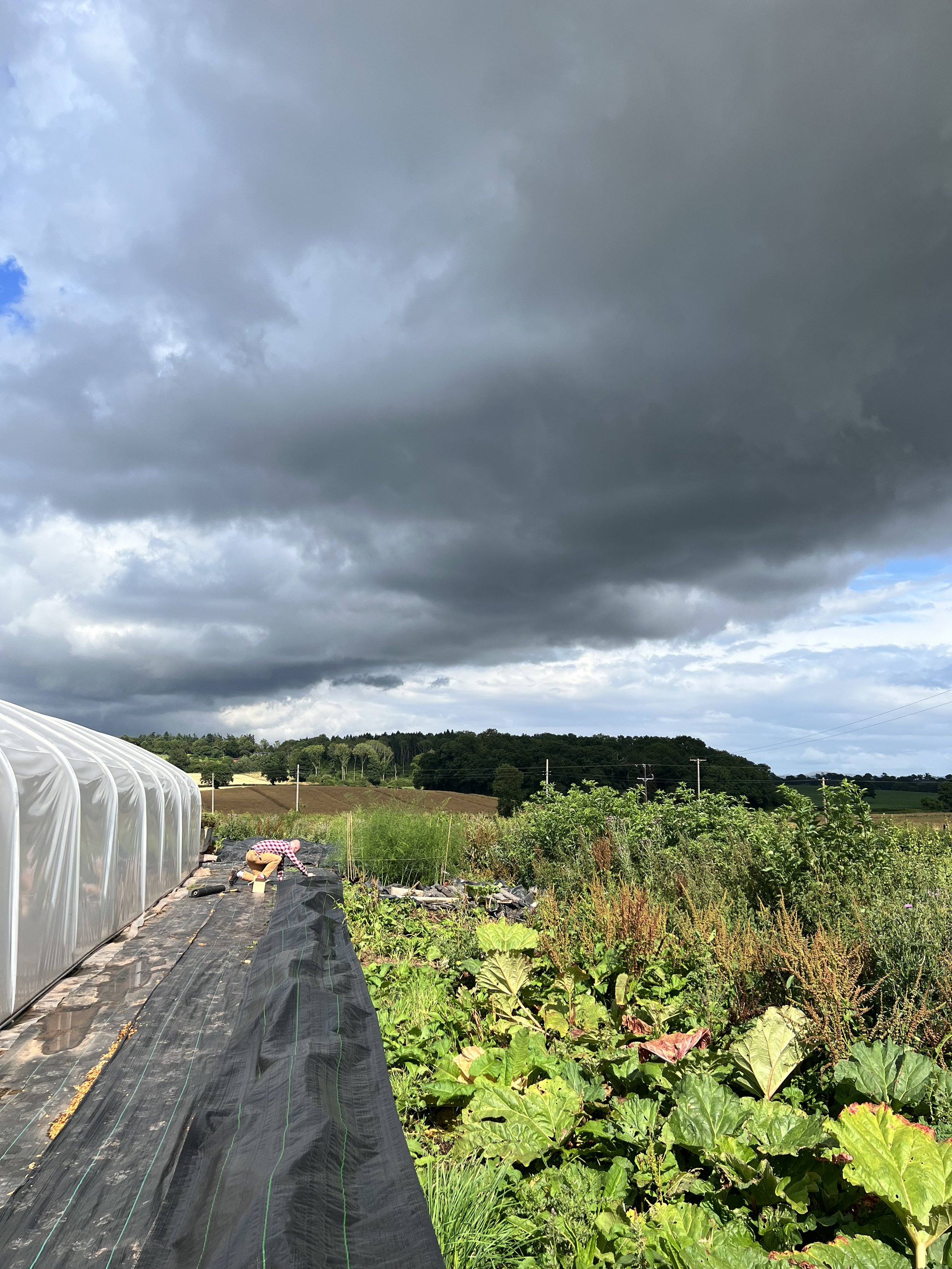Why No-Dig?
We choose to use a No-Dig method of growing in outdoor beds of our kitchen garden. No-dig gardening is a more sustainable and environmentally friendly way to prepare the vegetable beds than other more traditional methods. Some benefits of no-dig gardening include:
1. Much less disruption to soil structure: In traditional gardening, soil is dug and turned, disrupting the soil structure and releasing carbon dioxide into the atmosphere. No-dig gardening helps to maintain soil structure and encourages beneficial organisms that are part of the soil ecosystem to thrive.
2. Reduction in watering and weeding: Because no-dig gardening relies on building up layers of organic matter on top of the soil, these layers retain moisture and help to suppress weeds. This makes it easier to maintain and less time-consuming than traditional gardening.
3. Improved soil fertility: No-dig gardening involves adding layers of organic matter on top of the soil, such as compost or leaf mould. This improves the soil's fertility and encourages healthy plant growth.
4. Reduced carbon footprint: No-dig gardening has a lower carbon footprint than traditional gardening, as digging and tilling the soil contribute to increased greenhouse gas emissions.
5. Suitable for small spaces: No-dig gardening can be done in small spaces such as raised beds or containers, making it a great option for urban gardeners or those with limited outdoor space.
6. Cost-effective: By using organic matter from your own garden or kitchen, no-dig gardening can be a cost-effective way to grow your own food. Additionally, because it requires less maintenance and watering, it can help save on cost in the long run.


